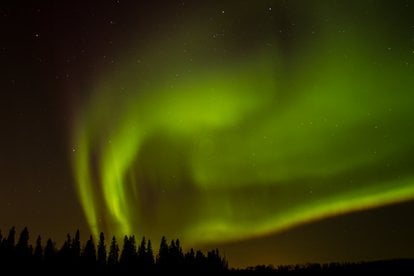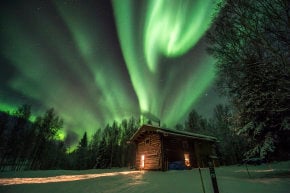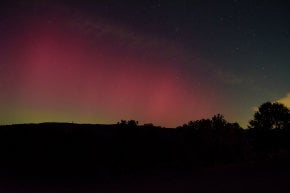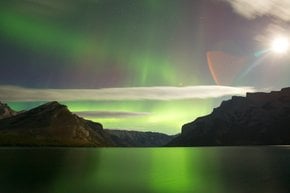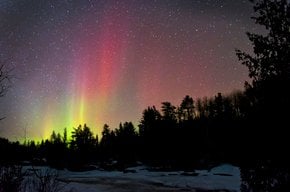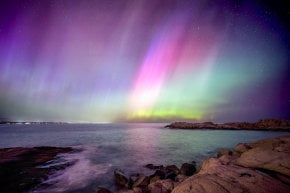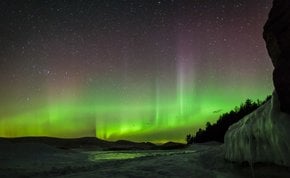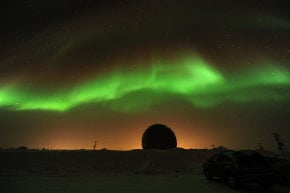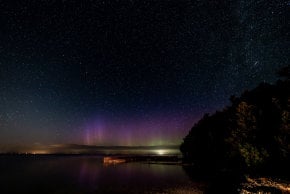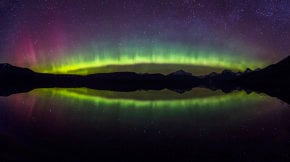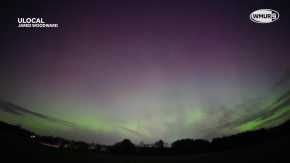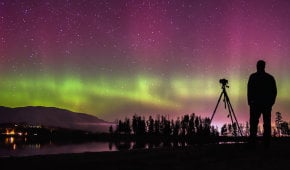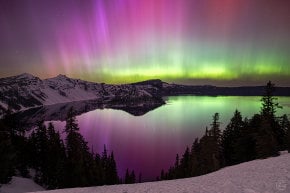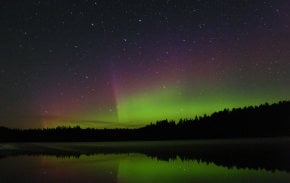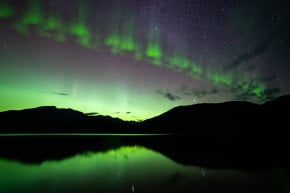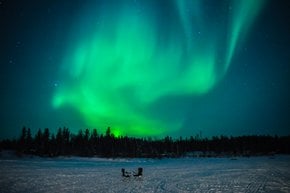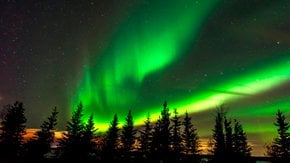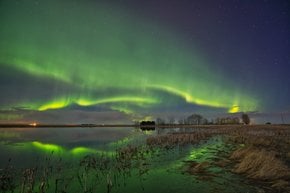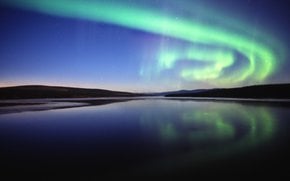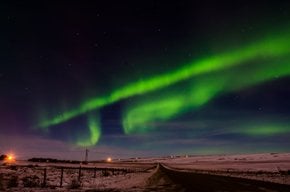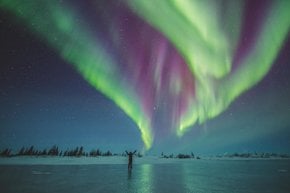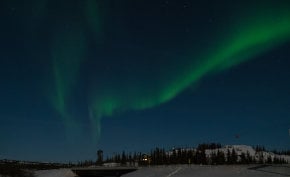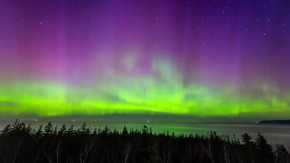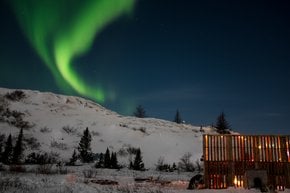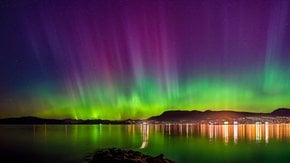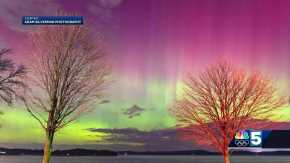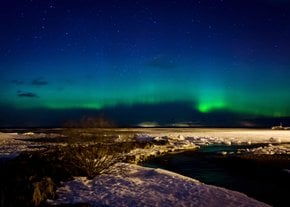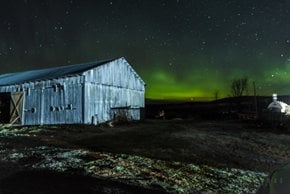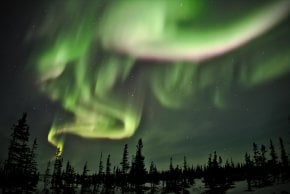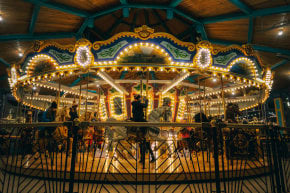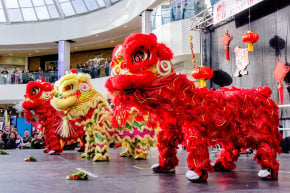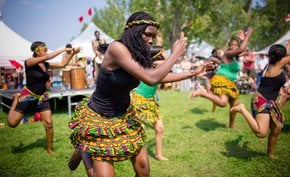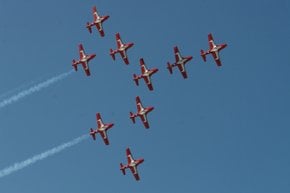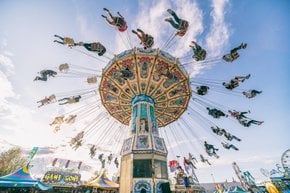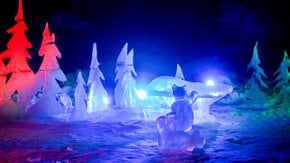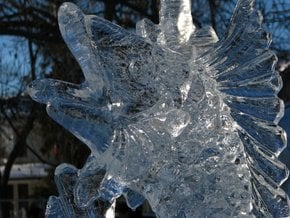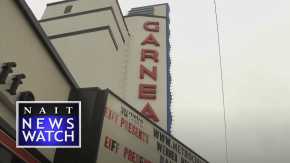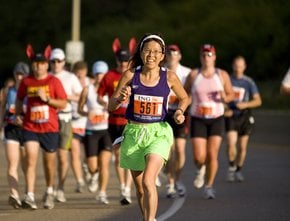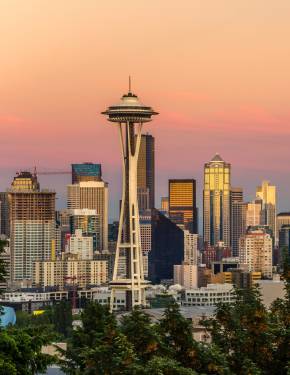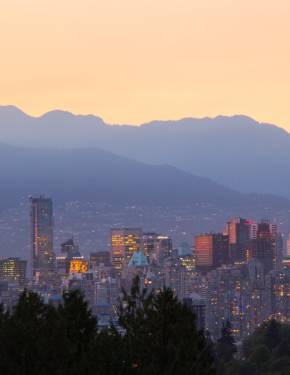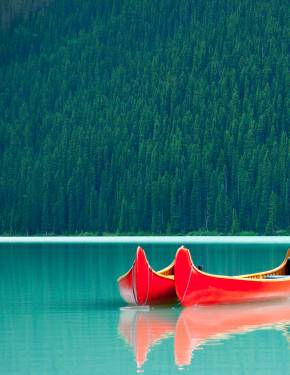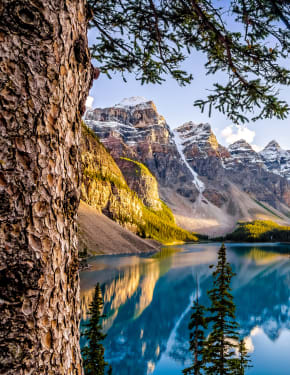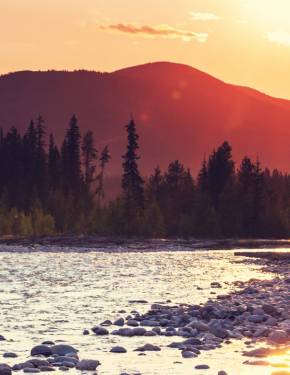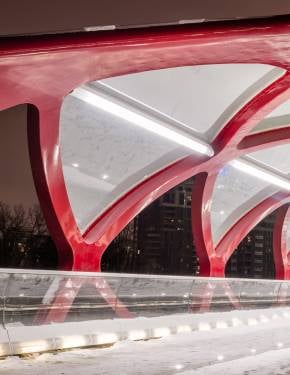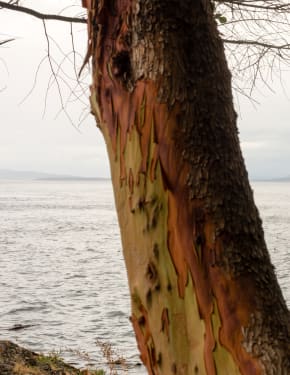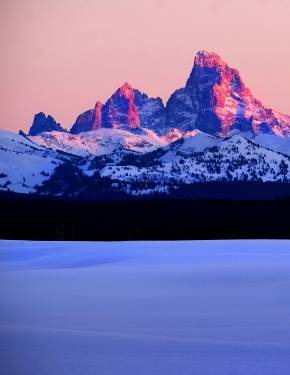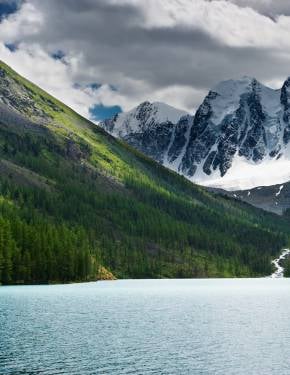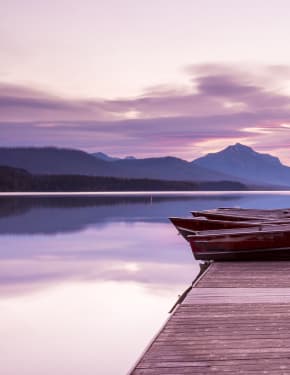Northern Lights in Edmonton 2025-2026
Edmonton boasts regular aurora borealis sightings
Best time: September–April
Edmonton, located in Northern Alberta, is still not as far north as Canada's top aurora-watching spots. However, it does enjoy frequent northern lights displays that appear on an average of about 90 nights per year.
Best time to see Northern Lights in Edmonton Area
Northern lights that are caused by geomagnetic activity are usually observed from September to April. Time around spring and autumn equinoxes is when "solar storms," causing aurora borealis, happen most often.
Northern Lights Forecast
To know the right time, check with the aurora forecasts of the University of Alberta or the University of Alaska Fairbanks. The University of Alberta monitors the Edmonton area for geomagnetic activity to make the most precise prediction. To capture the elusive lights dancing in the sky, you have to get away from the big city to avoid light pollution and hope for clear skies.
Beaver Hills Dark Sky Preserve
Luckily, you can reach a designated dark skies preserve in just 45 minutes by car from Edmonton. Beaver Hills Dark Sky Preserve occupies 116 sq mi (300 sq km) just east of the city. It features such scenic areas as Elk Island National Park and Cooking Lake Blackfoot Provincial Recreation Area, both of which offer a stunning backdrop for aurora. The preserve is holding the annual Star Party in September, and maybe you can see the beautiful natural phenomenon when it's still warm and while being in the company of fellow stargazers.
Elk Island National Park
Elk Island National Park is a UNESCO-designated Biosphere Reserve located 29 mi (47 km) or 35 minutes east of Edmonton. A breathtaking area features rolling hills, lakes, and star-filled skies. An Adult Ticket (ages 18-64) is $9, Senior (ages 65 or over) is $7.75, and youth (ages 6-17) have a free admission.
Cooking Lake-Blackfoot Provincial Recreation Area
Located 37 mi (60 km) east of Edmonton, the Cooking Lake-Blackfoot Provincial Recreation Area features peaceful forests, pastures, and wetlands. This 97-square-kilometer (38-square-mile) forested park is a spectacular spot for watching the Northern Lights near Edmonton. During the winter season, it also offers skiing, snowmobiling, equestrian activities, dog sledding, and skating. The Cooking Lake-Blackfoot is open to guests from 7 am to 11 pm daily. Admission is free.
Miquelon Lake Provincial Park
A large campground at Miquelon Lake Provincial Park offers many spacious sites surrounded by mixed forests suitable for camping and tenting with many trails for hiking, mountain biking, and skiing. Miquelon is part of the Beaver Hills Dark Sky Preserve and is a great spot for stargazing and aurora viewing. Miquelon Lake Provincial Park is open 24 hours a day, every day. Fees for camping are $26 per night.
Athabasca and Fort McMurray
As you go north, your chances to see aurora borealis increase. That's why FortMcMurray, located in northeast Alberta, is known to be one of the best aurora-watching spots in the country. And the trip there is worth a 4.5-hour drive from Edmonton.
Fort McMurray is nestled between boreal forests and the Athabasca oil sands. You can stay there or go further north to Wood Buffalo National Park, the world’s largest dark-sky preserve. Lake Athabasca, located near Wood Buffalo National Park about 140 mi (223 km) north of Fort McMurray, is another perfect destination for a northern lights chase due to the beautiful scenery and reflections in the water.
Jasper National Park
Jasper National Park Dark Sky Preserve, located west of Edmonton, is one of 17 designated Canadian dark sky preserves. With 4,247 sq. mi (11,000 sq. km) of wilderness around, stargazing can be a fantastic experience. Old Fort Point, Lake Annette, Pyramid Lake, and Maligne Lake are the most scenic places to enjoy the dancing lights display. The Jasper Dark Sky Festival is held in the park every fall. You may find it well worth a 3-hour trip from Edmonton. An Adult Ticket (ages 18-64) is $11, Senior (ages 65 or over) is $9.50, and youth (ages 6-17) have a free admission.
Strathcona Wilderness Centre
The Strathcona Wilderness Centre is an area for outdoor activities and a good joice for Northern Lights hunting. The center offers forested hiking trails, picnic sites, snowshoeing, and much more for visitors to enjoy. In summer, there is no entrance fee. However, in winter, there is a charge for cross-country skiing, but this does not apply to hiking or snowshoeing.
How to capture Northern Lights on your camera
It's recommended to shoot the Northern Lights in manual mode. Focus the camera on the farthest point, ideally in daylight, and mark the correct lens position rather than trying to focus in the dark. The aperture should be opened as wide as possible to ensure both the Northern Lights and the sky behind are in focus. Additionally, the shutter speed should be as short as possible. Set your camera's ISO to 2000 or higher.
Practical info
External resources
- Cooking Lake-Blackfoot Provincial Recreation Area | Alberta Parks (Official website)
- Elk Island National Park | Canada Parks (Official website)
- Miquelon Lake Provincial Park | Travel Alberta (Official website)
- Jasper National Park | Canada Parks (Official website)
- Strathcona Wilderness Centre | Travel Alberta (Official website)

